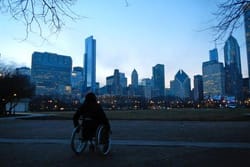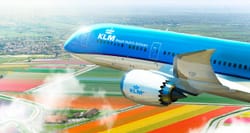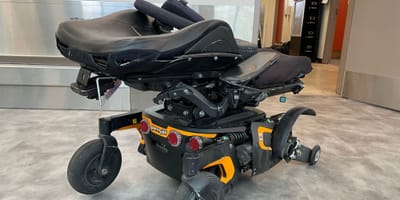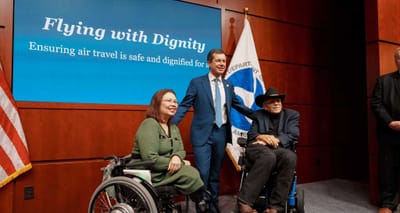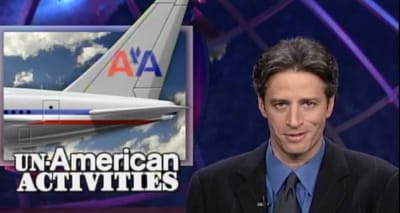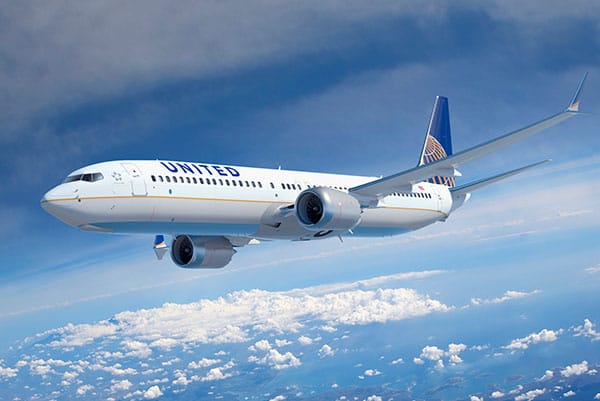
Many in the disability community have been following the story of D’Arcee Neal, a wheelchair user who recently crawled off of a United Airlines flight. There has been a great deal of discussion, and some have drawn conclusions without considering all of the facts.
As a wheelchair user who has taken more than 150 flights in the last year, allow me to share my three takeaways from the story.
Wheelchair users should expect to wait.
In reading the first reports, I was left wondering how long Mr. Neal waited before crawling off of the plane. A new
CNN articlesuggests that the wait was around 30 minutes. The United Airlines flight from San Francisco to Washington-Reagan is operated on a Boeing 737. It would take about 15 minutes for passengers to deplane the aircraft on arrival. The passenger claims that he waited an additional 15 minutes.
Once the able-bodied passengers had deplaned, Mr. Neal should have been helped off of the aircraft without delay. Oftentimes, passengers will be allowed to remain onboard while their gate-checked wheelchair is brought up from the cargo hold. In this case, that was not an issue.
The United Airlines gate agent handing the arriving flight made a mistake. It was his/her responsibility to ensure that the wheelchair assistance staff were ready to assist the passenger.
United operates a single daily nonstop flight on the route Mr. Neal flew. That flight typically arrives after 10 p.m. Once the gate agent realized their mistake, it would be difficult to call back the assistance staff at such a late hour. The United flight would have been one of the last arriving flights at the airport.
The generally accepted standard for getting travelers with disabilities off of an aircraft and reunited with their wheelchair or mobility device is within 30 minutes. United exceeded that accepted time frame, and thus committed a violation of the
Air Carrier Access Act(ACAA).
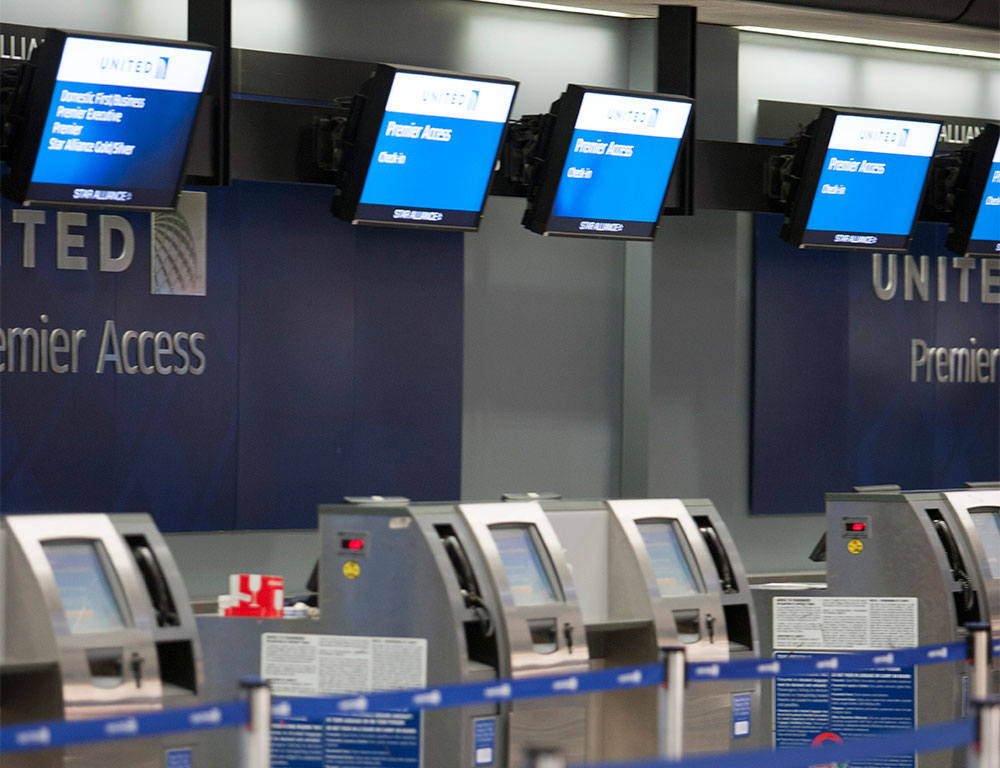
Planning ahead is important.
Prior to taking a long flight, I make every effort to limit my intake of liquids. On a 5-hour cross-country flight, even this may not be enough to ward off the urge to “go.”
Using the onboard lavatory is an option,
even if you cannot walk. Prior to travel, passengers can request that an aisle chair be stowed onboard for use during the flight. Flight attendants have been trained to help passengers to the restroom using the onboard aisle chair.
This aisle chair cannot be used for boarding or deplaning, and cabin crew are restricted from assisting in this regard.
If the passengers’ disability would prevent him/her from using the aircraft’s lavatory in this manner, they should consider booking an itinerary with an intermediate stop/connecting flight.
In my own travels, I expect to be disconnected from a restroom for the total flight time, plus an additional 1 hour, 15 minutes for boarding/alighting the aircraft.
United Airlines’ response should be praised.
Before you send projectiles in my direction, hear me out.
United responded in a way that I have never experienced in my own travels with any airline.
Mr. Neal didn’t file a complaint with the airline. One of the flight attendants witnessed a violation of the ACAA and reported it to corporate. They reached out to the passenger and offered a proactive apology and $300.
According to the CNN report, United has also suspended the manager on duty. That is truly unprecedented, and a game-changer. United Airlines sent a message to its employees that failures in the provision of services for disabled travelers will not be tolerated.
Conclusion
Mr. Neal’s plight was not an isolated occurrence. Violations such as this occur daily, and are oftentimes far more egregious. I have experienced more than a few myself.
United Airlines has taken a responsive step that should be celebrated by those who support equal access to airports and airplanes for all. Still, the U.S. Department of Transportation should levy enforcement action against United (and every other airline) who has committed a violation of the ACAA. Until there are penalties for violating the civil rights of travelers with disabilities, airlines will have little to no incentive to pursue compliance.
If you believe that an airline has violated your rights under the ACAA, please take a few minutes to
file a complaint with the DOT. The maximum fine per violation is $27,500. Airlines should be held to account for issues such as this, and it all begins with filing a formal complaint.
If you have had an issue with an airline and feel that your rights may have been violated, please send me an e-mail at
john@wheelchairtravel.organd share it with us in the comments below.










